Celebrating a new year in a Bodo home
A photo essay by Alongbar Basumatary taken on the 14th of April 2021 at his village near the town of Bongaigaon in west Assam.
Assam as most states in India is primarily an agrarian society. Celebrations are based on harvests, planting of paddy and the lunar calendar. Most associate it with the dance, bonfire and sound of the dhool as celebrated by the mainstream Assamese. But the festival is much older.
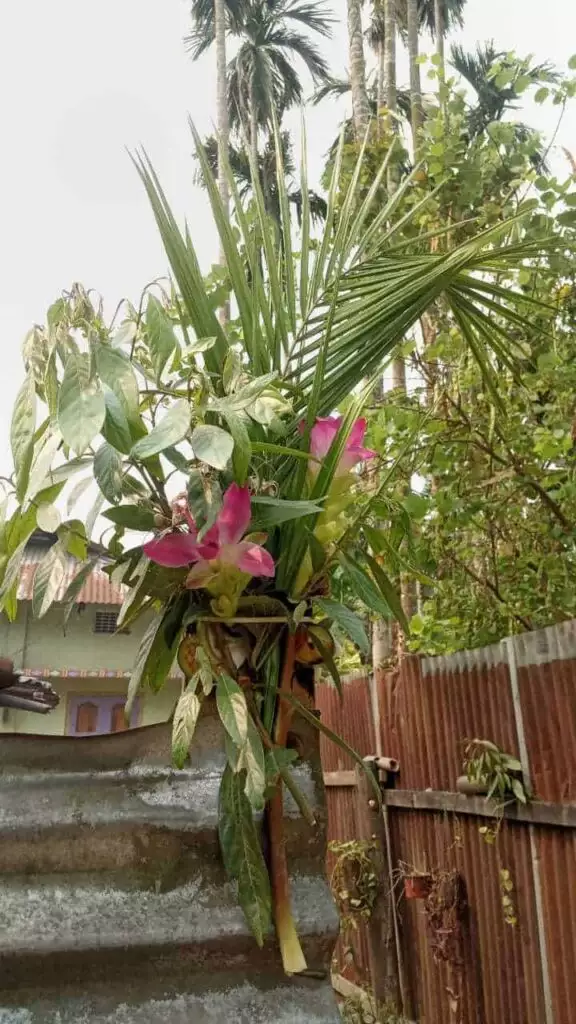
wild orchids are used and ginger flowers are used for decoration 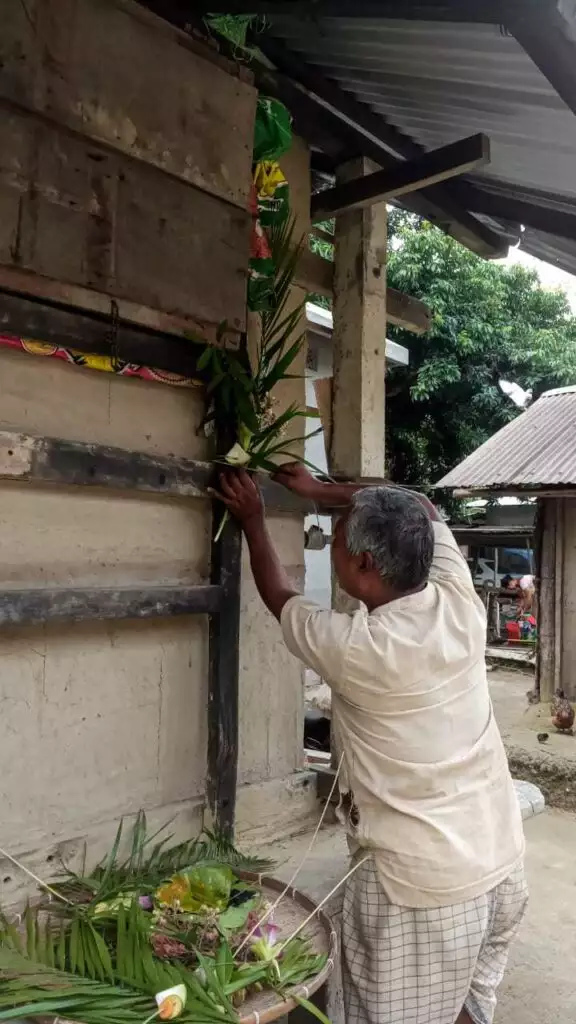
Decorating the courtyard and cowshed with floral bouquet
Bihu comes from the Bodo language and is linked to Bwisagu which means the first day or start of the year of Bohaag Dhan (a type of rice).The last day of the sixth month from when the paddy was first planted is considered as the end of the year.
The tribesmen celebrate this day by giving the cattle an oil bath and then taking them to the river for bathing. They are garlanded and given a special meal consisting of pounded rice and vegetables. It is their way of thanking the animals for the support given . This day is also called Mwsouw Bwisagu. Ghoru bihu in Assamese.
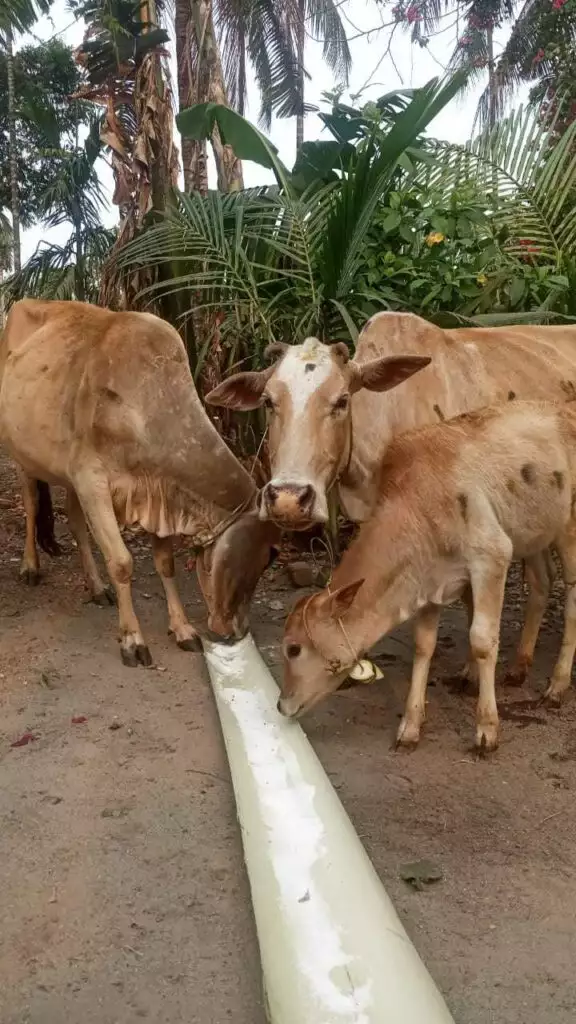
Cattle are being feed 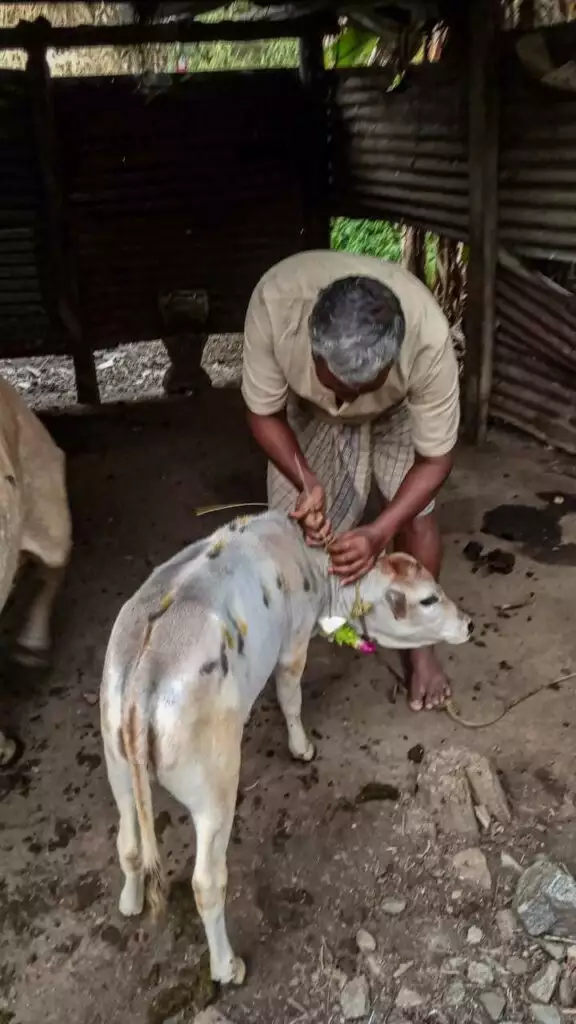
After bathing the cattle floral garlands are tied around their neck
“The breakfast is special on this day. We drink only red tea known as lal sa. This is symbolic in giving the cattle a day off from milking, working in the fields or carrying load. It is their day of rest. We eat sticky rice along with country chicken and a dry snack made with lentils.”says Alongbar, a student studying in Bongaigon town and a talented photographer.
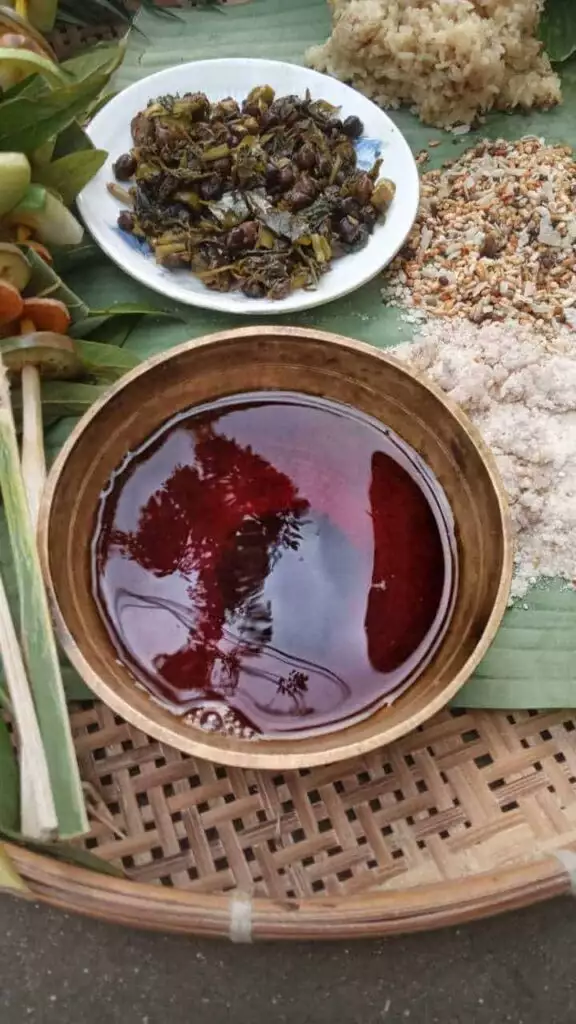
lal cha without milk 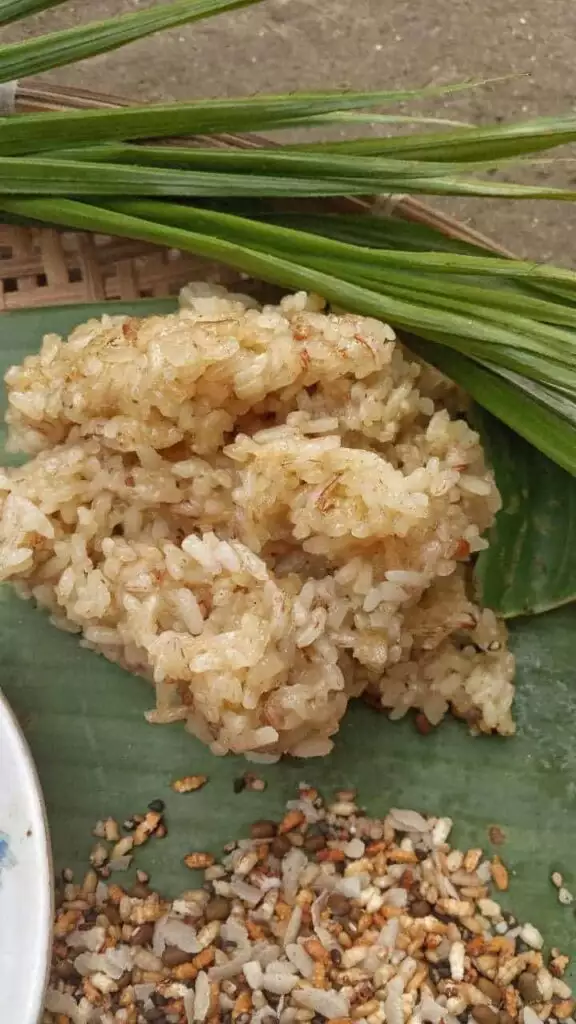
Sticky rice 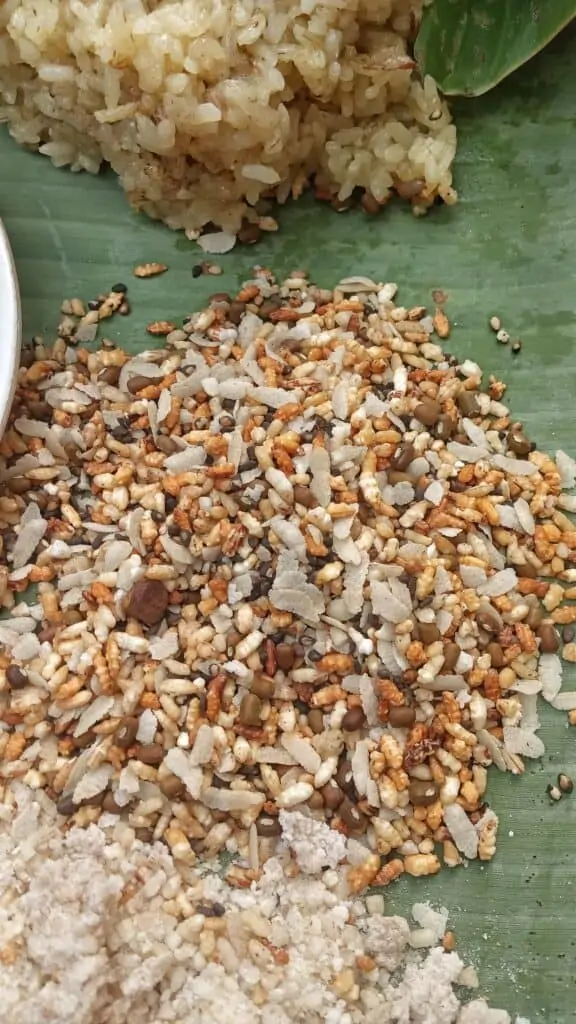
Herbs foraged from the jungle
“Another feature of Ghoru Bihu is women go into the forest in search of 101 jungle herbs which is used to make a dish eaten by the tribesmen on this particular day. It is believed that this dish provides strength, vitality and good health for the whole year ahead”
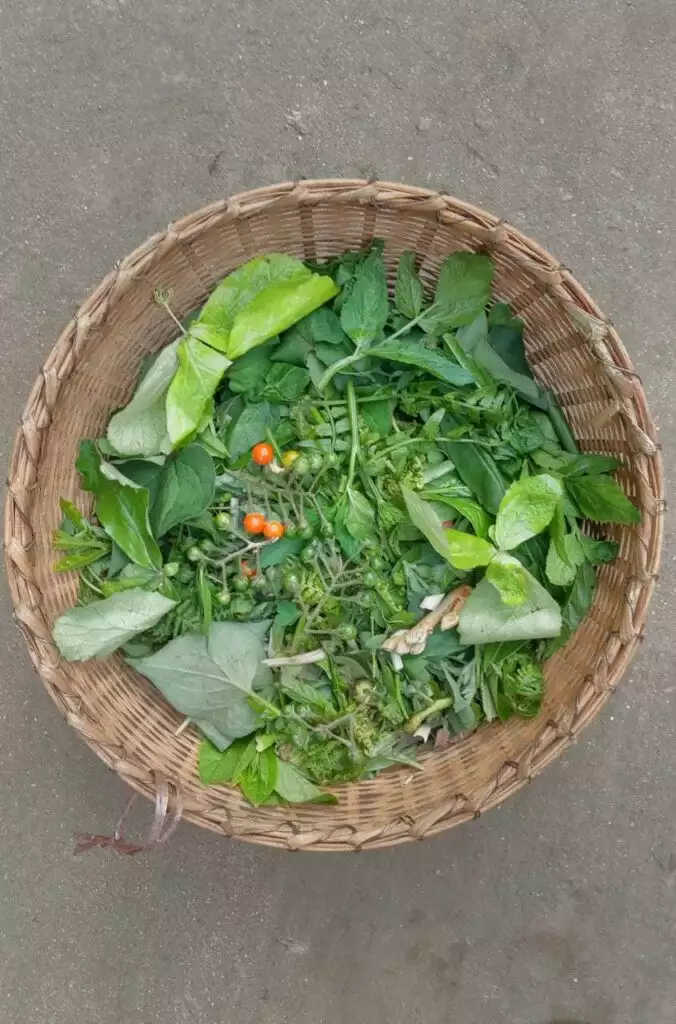
Herbs foraged from the jungle 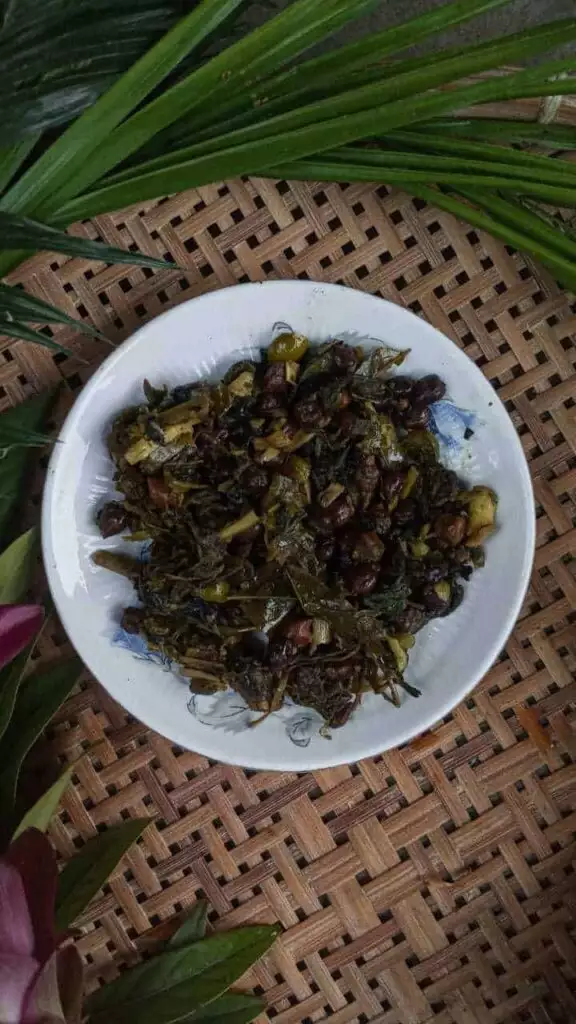
The stir fry made using 101 different types of greens. it is suppose to build immunity.
Alongbar Basumatary is on instagram: @soul_of_green

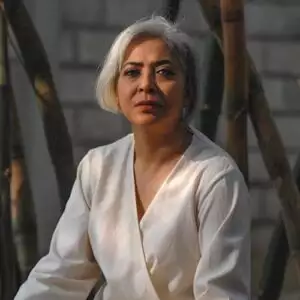
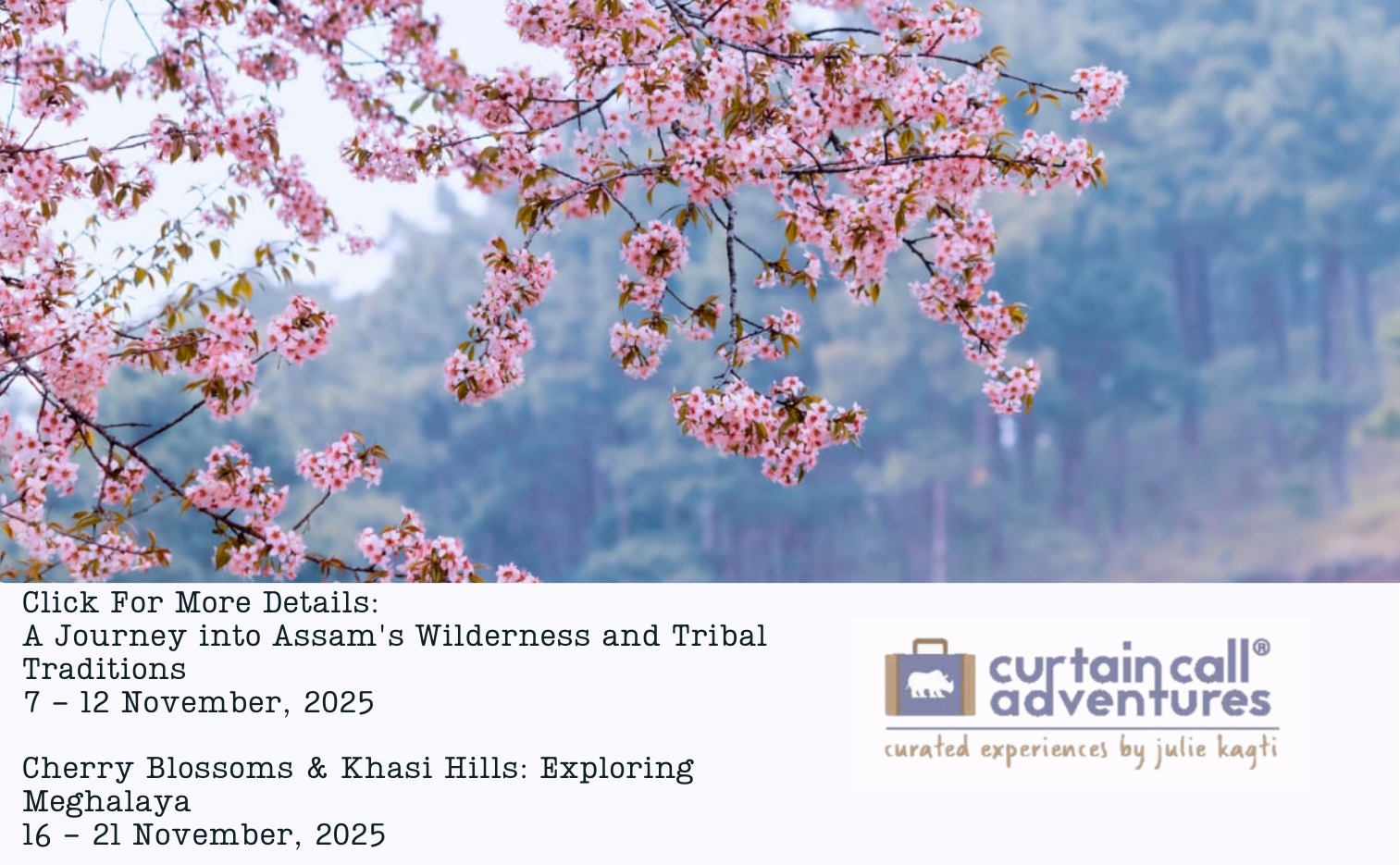
One Response
Wonderful
Happy you are bringing the diversity of Assam into the National landscape.
Ratul Mama